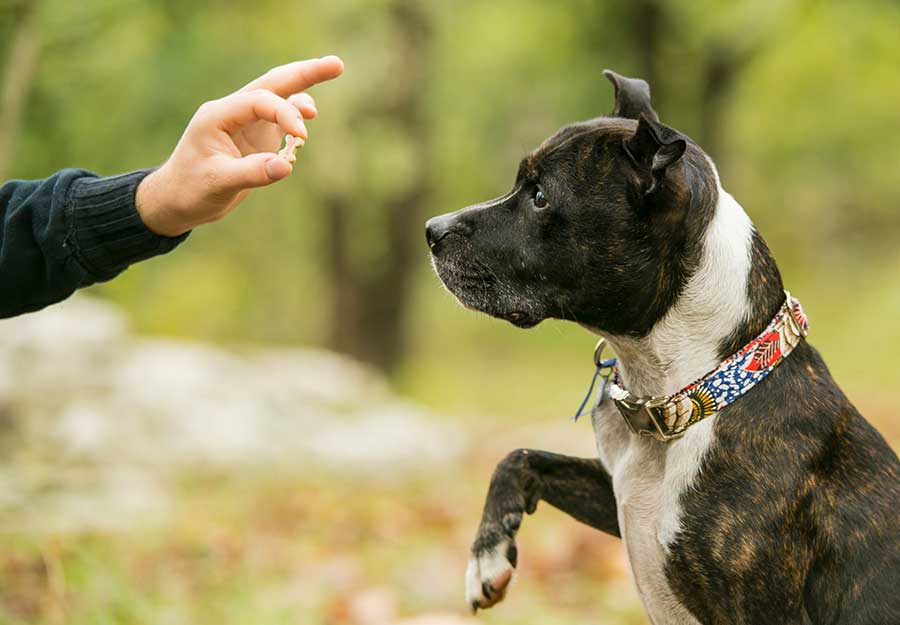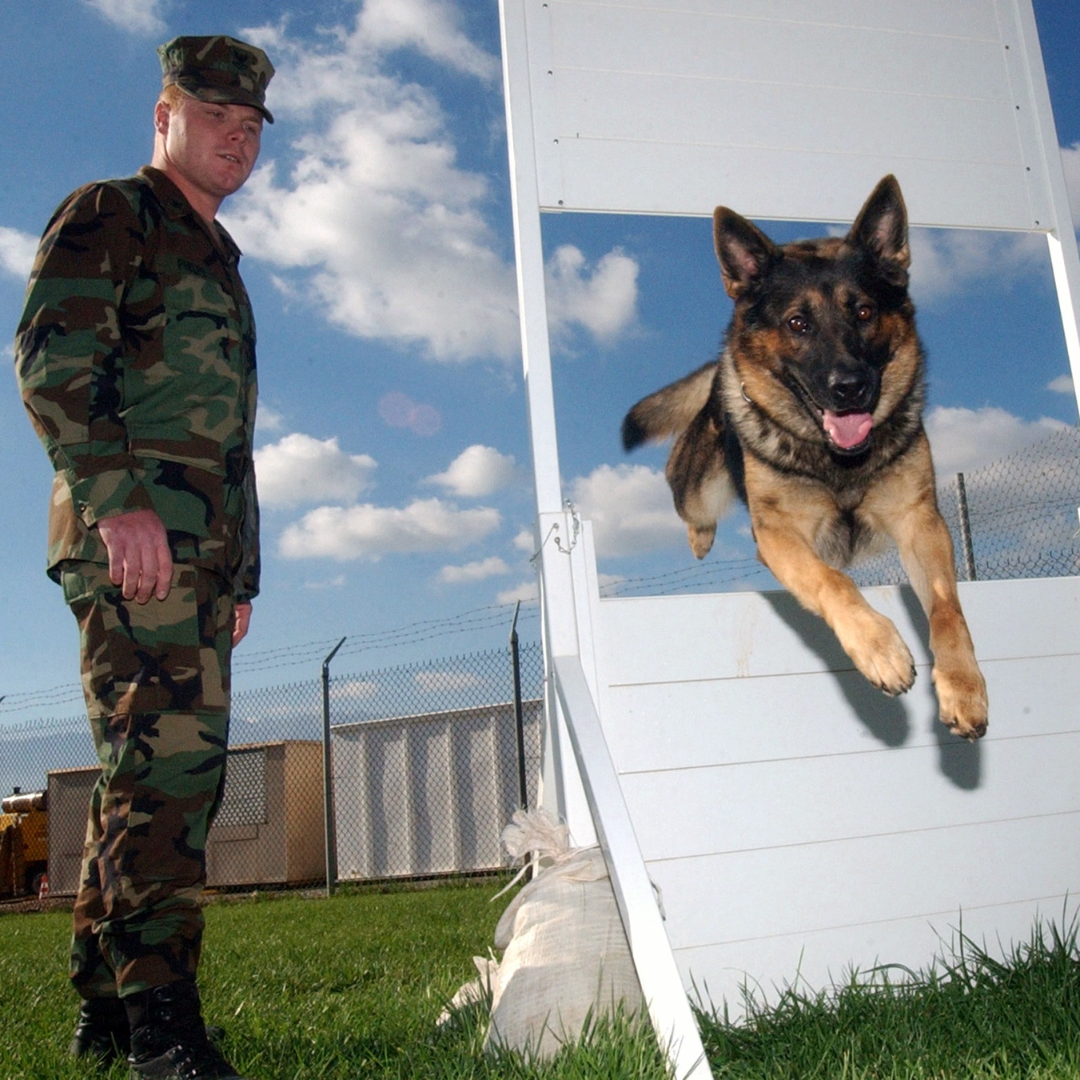The Ultimate Overview to Dog Training Charlotte: Strategies for Success
The Ultimate Overview to Dog Training Charlotte: Strategies for Success
Blog Article
Unlock Your Pet's Prospective: Proven Canine Training Strategies for Success
Effective pet training is a nuanced procedure that hinges on understanding canine actions and using clinically backed methods. By incorporating favorable reinforcement, establishing clear commands, and prioritizing socializing, pet dog owners can cultivate an effective partnership with their pets.
Comprehending Pet Behavior
Comprehending pet dog behavior is vital for effective training and promoting a favorable partnership between canines and their owners. An extensive grasp of canine body movement, vocalizations, and social communications is crucial for recognizing their demands and emotions. Dogs connect mostly with non-verbal signs; for instance, a wagging tail may suggest enjoyment, while pinned ears can signify worry or entry.

In addition, environmental elements play a considerable role fit a dog's habits. Changes in routine, brand-new environments, or the visibility of unknown individuals can bring about anxiety or anxiousness in canines. Identifying these triggers enables owners to reduce adverse responses and establish proper training methods.
Inevitably, a deep understanding of pet behavior lays the foundation for successful training approaches, boosting both actions and the total bond in between the canine and its proprietor. dog training charlotte. This understanding is essential for cultivating a well-adjusted, pleased canine friend
Favorable Support Techniques
Efficient training relies heavily on favorable support techniques, which have actually been revealed to generate substantial lead to shaping preferred actions in pets. This approach includes compensating a dog for exhibiting specific actions, thereby boosting the probability that these actions will be repeated. Rewards can take different kinds, consisting of treats, appreciation, playthings, or playtime, relying on what encourages the individual dog.

It is necessary to progressively eliminate rewards as the canine finds out the habits, transitioning to recurring support. This approach keeps the behavior gradually while preventing dependency on continuous rewards. By concentrating on positive support, trainers can cultivate a trusting connection with their dogs, advertising a cooperative and healthy training atmosphere that improves total obedience and performance.
Establishing Regular Commands
An essential element of effective dog training is the establishment of regular commands. Consistency in commands is vital for reliable communication between the fitness instructor and the pet. When commands are uniform, pet dogs discover to connect details words with wanted behaviors, which speeds up the training procedure and boosts understanding.
To establish constant commands, it is essential that all household participants use the very same terms and motions. If one person utilizes "sit" while one more says "rest down," it can create complication for the pet dog. Select clear, distinct words for commands and guarantee everyone associated with the dog's training sticks to these choices.
Strengthen commands with frequent practice, ensuring that the canine receives sufficient chances to react properly. When a dog efficiently complies with a command, immediate positive reinforcement should click for more adhere to.
Finally, be individual. Developing consistent commands takes some time and effort. With commitment and quality, you will assist your pet dog create a strong understanding of expectations, inevitably causing a mannerly friend.
Socialization and Direct Exposure
Interacting socially a dog is important for fostering a confident and well-adjusted friend. This process includes exposing your pet to a range of atmospheres, individuals, and various other animals to establish their social abilities and versatility. Early socializing, ideally between the ages of three to fourteen weeks, is essential, as it prepares for a canine's future habits.
Throughout socialization, aim to provide positive experiences in different setups, such as parks, hectic streets, and homes with other family pets. Introduce your dog to different stimulations, including noises, sights, and smells, ensuring that each encounter is rewarding. This direct exposure aids mitigate anxiety and anxiousness, navigate here paving the means for a much more resistant pet dog.
Participating in controlled group play sessions with other pets can also improve social skills, showing your animal suitable communications and limits. Always check your pet dog's convenience level throughout these experiences, progressively boosting direct exposure as their self-confidence grows. Keep in mind, the goal is to produce a well-shaped animal that grows in varied circumstances, promoting an unified relationship with both people and various other pets. Prioritizing socializing will considerably contribute to your pet dog's overall happiness and habits throughout their life.
Conquering Common Educating Challenges

Another constant problem is interruption. Pet dogs might struggle to concentrate in hectic or unfamiliar setups. Gradually desensitize your pet dog to interruptions by starting training in a peaceful environment and slowly introducing even more stimulations as they end up being proficient (Dog training). Favorable reinforcement strategies, such as treats and appreciation, can maintain motivation and emphasis.
Additionally, behavior issues like leaping or too much barking can become aggravating. Address these by showing different behaviors, such as resting smoothly when welcoming visitors. Uniformity and patience are important; enhance wanted habits continually and stay clear of scolding, which can bring about complication.
Last but not least, acknowledge that each pet is special, and training timelines may vary. Tailor your method to your dog's individual demands, and look for professional guidance if essential. With willpower and the right approaches, conquering these difficulties can cause a well-trained, delighted canine companion.
Conclusion
In verdict, unlocking a canine's prospective straight from the source demands a comprehensive technique that integrates an understanding of canine behavior, the application of favorable support techniques, and the facility of constant commands. Early socialization and direct exposure to varied atmospheres further enhance a pet's flexibility and self-confidence. By attending to typical training obstacles with customized methods and perseverance, a harmonious and cooperative relationship between dog and trainer can be fostered, ultimately leading to a mannerly friend with the ability of thriving in numerous circumstances.
Reliable pet training is a nuanced procedure that pivots on comprehending canine actions and employing scientifically backed strategies.Recognizing pet behavior is crucial for effective training and promoting a favorable connection between pets and their proprietors.Reliable training counts greatly on favorable reinforcement strategies, which have actually been revealed to generate significant outcomes in shaping wanted habits in canines. When commands are consistent, pet dogs discover to connect specific words with wanted actions, which speeds up the training procedure and enhances understanding.
In verdict, unlocking a canine's possible demands a comprehensive approach that includes an understanding of canine habits, the application of favorable reinforcement strategies, and the establishment of constant commands.
Report this page